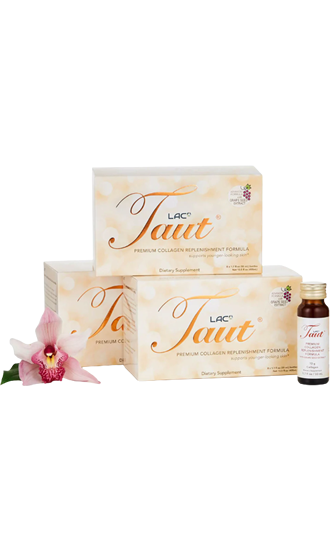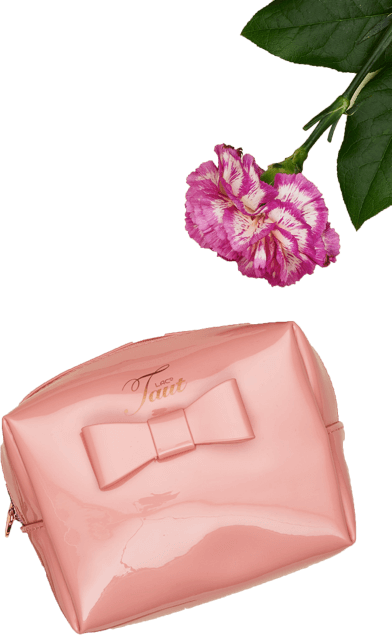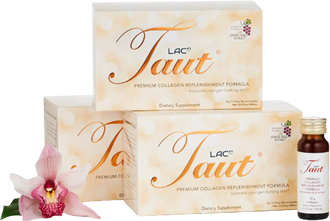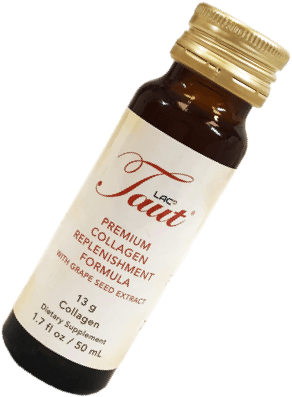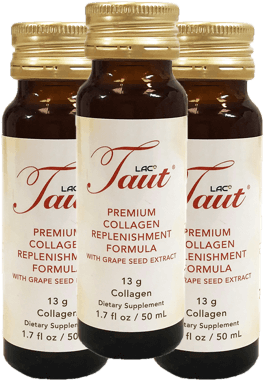What Are Ceramides & What Does a Ceramide Do? (+ Skin Care Benefits)

Ask any dermatologist about ceramides and we can guarantee they'll sing their praises. Ceramides are powerful ingredients that are cropping up in everything from budget body lotions to premium anti-aging products.
It's a fact that ceramides are key to maintaining healthy skin. We all have them in our bodies, but there are many things in life that can damage them. Sun damage, pollution, allergens, and harsh exfoliants can strip our skin of these important ingredients. Even washing our faces with too-hot water can hurt them!
So if something is making your skin dry and irritated, it could be related to your ceramide levels. No matter your skin type, these are serious skin care ingredients you're going to want to add to your routine, stat. Here's the down-low on everything we know about ceramides, how they work, and how you can use them to your advantage.
What Are Ceramides?
Ceramides are types of lipids (a.k.a. fats) that exist naturally in the body. Ceramides are important in skincare because they make up about half of your lipid skin barrier, particularly within the outer layers (stratum corneum). This is a barrier layer that prevents moisture evaporation and protects your skin from germs and environmental damage. A healthy skin barrier will keep your skin soft and supple.
We have ceramides in our bodies, but you'll also find them in skincare products. These ceramides are synthetic ceramides, but they function in the same way as natural ceramides.
The 12 Different Types of Ceramides
Natural ceramides are the ones found in our bodies, and they can also be found in certain animals as well as plants like soy. Synthetic ceramides are man-made, created from fatty acids, amino acids, and a substance known as sphingosine.
There are actually twelve types of ceramides, named numerically from 1 to 12. The most common ceramides will be identified on your product labels as:
-
Ceramide 1 (ceramide EO)
-
Ceramide 2 (ceramide NG or NS)
-
Ceramide 3 (ceramide NP)
-
Ceramide 6-II (ceramide AP)
-
Ceramide 9 (ceramide EOP)
You don't need to get too bogged down in the details of which ceramide is which, as they all function in a similar manner. The difference comes from the form of sphingosine and the type of fatty acid used. Ceramide 3 is the most common type of ceramide found in skin care products.
Benefits of Ceramides for Skin
So what do ceramides actually do for your skin? Here's how these powerful lipids help your skin function properly:
Support Skin Cells
The stratum corneum, which is the outermost layer of your skin, is made up of skin cells and lipids. You can think of skin cells as the building blocks, while lipids are the glue that holds it all together. Ceramides compose almost 50% of this stratum corneum layer, and without them, your skin cells wouldn't be able to function properly.
Restore the Natural Skin Barrier
Ceramides play a crucial role, along with other fatty acids, in maintaining the skin barrier layer, which can be worn down by heat, harsh skincare ingredients, medications, allergens, sun damage, and pollutants. Damage to the skin barrier leaves your skin feeling uncomfortably tight and dry, and it can make your complexion appear dull. It will also leave you more exposed to germs, toxins, and pollutants.
Adding ceramides to your skincare routine can help restore a damaged skin barrier, replenishing lost lipids in the epidermis and rebuilding that key protective layer.
Moisturize & Soften the Skin
Ceramides play a key role in skin hydration by improving the skin's ability to retain moisture. The cause of dry skin is something known as trans-epidermal water loss (TEWL), which is the process of water evaporating from your dermis (the lowest layer of your skin) out through the epidermis (the outer layer of your skin). This happens at an exaggerated rate if your skin barrier is not intact, causing dry and irritated skin.
To combat severe dry skin, you want to maintain as much water as possible in your dermis. By repairing your skin barrier, ceramides help slow down the rate of water loss in your skin, locking in all of that essential moisture.
Plump Your Skin from Within With Hyaluronic Acid
Hyaluronic acid (HA) and ceramides are the dream duo for smooth and supple skin. A natural humectant, HA is a molecule that attracts and retains water in your dermis. This can seriously plump up your complexion and keep it hydrated and soft. When you use both ingredients in the same skincare routine, you're giving your skin the amazing powers of HA to hydrate from within, then sealing all that goodness in with ceramides.
Taut Hydrate hyaluronic acid supplements contain a powerful dose of this moisturizing ingredient, allowing you to hydrate your skin from the inside out. Topical application of HA will only sit at the epidermis level, where it's less useful. By ingesting HA rather than applying it topically, you can deliver a high concentration of the ingredient directly to your dermis where it's most needed.
Reduce the Early Signs of Aging
Ceramides are an important ingredient in anti-aging skin care, too. This is because fine lines and wrinkles will appear deeper and more pronounced when your skin is dry. By sealing in essential moisture, ceramides can help reduce the appearance of wrinkles. Well-hydrated skin will also have a brighter and more radiant glow than dry, irritated skin.
Combine Ceramides With Liquid Collagen for Maximum Benefit
Of course, wrinkles form due to a number of other factors that ceramides alone cannot fully tackle. While dry skin will accentuate fine lines and wrinkles, the primary cause of these visible signs of aging is the loss of collagen and elastin in the dermis. Collagen and elastin are two essential proteins that form the structural support for our skin. As we age, we lose more and more of these proteins and our skin begins to wrinkle.
Replenishing collagen and elastin in the dermis is possible with a good quality supplement such as Taut Liquid Collagen. This liquid collagen drink contains a winning combination of collagen peptides, elastin, ceramide, grape seed extract, and vitamin C to tackle the signs of aging from all angles. Collagen and elastin provide structural support for your dermis, ceramides hydrate and protect your skin barrier, while vitamin C and grape seed extract offer antioxidant protection against toxins. This supplement is a tiny bottle that packs a big punch!
Protect the Skin from Irritants
By repairing and reinforcing your natural skin barrier, ceramides are especially beneficial for sensitive skin, protecting it from environmental aggressors like allergens, toxins, and pollution. When your skin barrier isn't functioning properly, it's much easier for particles in the air to penetrate your skin. This can cause skin irritation, especially for those with sensitive skin or skin conditions like rosacea or eczema. Ceramides seal your skin's barrier and help keep irritants out.
Improve Skin Tone & Reduce Inflammation
Uneven skin tone is characterized by blotchy patches of pigmentation, dark spots, and redness. These are often signs of inflammation that may be caused by certain underlying skin conditions like acne, rosacea, or eczema, or by sun damage. Very dry skin can also make your skin appear dull and blotchy.
Ceramides can help combat pigmentation issues by protecting your skin against external aggressors. Well hydrated skin will also be able to heal more quickly from things like acne scars and sun damage, which will help reduce scarring, skin inflammation, and pigmentation even further.
Harness the Power of Antioxidants to Protect & Repair
While ceramides protect the skin by improving its barrier function, effectively repairing your skin at the barrier level, it's important to combat pigmentation issues with sunscreen and antioxidants too. Antioxidants are powerful molecules that neutralize toxins in the body, and they can seriously improve your skin's natural tone and texture. An antioxidant supplement like Masquelier's French Pine Bark OPC can fight inflammation and pigmentation issues from the inside out, healing and soothing your skin while defending against pollutants and toxins.
French Pine Bark is one of nature’s most powerful antioxidants. It neutralizes excess free radicals and toxins, protecting your complexion from inflammatory acne, sun damage, environmental damage, and other underlying skin conditions. Combine antioxidants with ceramides for the best results for your skin, fighting inflammation and infection from all angles.
If My Body Already Contains Ceramides, Why Do I Need More?
Although ceramides are found naturally in the epidermis, they can be damaged and worn down over time. Skin disorders, hot water, harsh ingredients, allergens, UV rays, and pollutants can all wear down our natural ceramides and weaken the skin's barrier. It's also part of the aging process that our natural ceramide levels will decline as we get older.
Using ceramide skin care products can support your skin's natural ceramide production, helping to repair and maintain a healthy moisture barrier.
What Should I Look for in a Ceramide Product?
If you're convinced that it's time to add ceramides to your skincare routine, here are a few things to be aware of before you purchase your next product:
Differentiating Between Natural & Synthetic Ceramides
Natural ceramides can only describe those that are naturally found in our bodies, animals, and some plants. All other ceramides are synthetic. Despite the usual preference for anything natural, in this case, synthetic isn't a bad thing.
Any moisturizer or supplement containing ceramides will be synthetic. Synthetic ceramides are actually preferred for skin care products and supplements because the length of the amino acid chain can be controlled more carefully, resulting in more stable molecules that are free from contaminants. Synthetic ceramides are safe and effective ingredients for improving overall skin function.
This Is Why Packaging Matters...
Watch out for the packaging your ceramide skin care products are contained in. Ceramides need to be stored in airtight and opaque (not clear) bottles or tubes. This is because air and light can make ceramides less effective over time. Any skin care brand worth it's salt will package ceramide products in this way, but it's always worth checking to make sure you aren't buying an ineffective product.
Topical Ceramides vs. Ceramide Supplements
You can get ceramides into your skin through topical application or by ingesting them. Topical ceramides can come in a huge variety of skin care products like cleansers, toners, serums, moisturizers, and masks. Studies have proven topical ceramides to be very effective at improving moisture levels and repairing your skin's natural barrier. 1
If you'd rather ingest your ceramides, you can find them in supplements like pills, powders, and drinks. Fewer studies have been done on ceramide supplements, so a hydrating ceramide cream may be the best way forward if your skin is dry and in need of repair. However, it will be beneficial if you take your ceramides in supplements that also contain other skin-loving (and proven) ingredients like collagen peptides and vitamin C.

How to Use Ceramides in Your Skin Care Routine
Ceramides can be incorporated into skincare routines at many stages, from initial cleansing to your final night cream. Ceramides are most commonly found in moisturizers and used at the final stage of your skin care routine to seal in all of the moisture and other skin-loving ingredients that you have applied before them. For best results: cleanse, exfoliate, use a serum that suits your skin (for example, vitamin C for skin-brightening or retinol for anti-aging), then finish with a ceramide moisturizer to seal everything in.
Ceramides can also be incorporated into your body care routine to combat dry skin. For maximum hydration, apply a ceramide body moisturizer straight away after a shower or bath. When your skin is slightly damp, the ceramides can lock all that much-needed moisture in!
Combining Ceramides With Other Skin Care Ingredients
Ceramides are very safe and you can use them in conjunction with many other ingredients. They are gentle and non-reactive ingredients, so you won't have to worry about any unusual reactions. Ceramides work well with:
- Exfoliating acids like glycolic acid help enhance absorption.
- Retinoids help ceramides penetrate deeper into the skin.
- Antioxidants like vitamin C help boost the protective qualities of ceramides.
- Collagen peptides can maximize the anti-aging properties of a ceramide product.
The Perfect Ratio: Cholesterol, Ceramides, & Fatty Acids
The stratum corneum, i.e. your skin's natural barrier layer, contains three fats known as the stratum corneum lipids. For maximum benefit for your barrier function, you can use a combination of these three stratum corneum lipids in your skincare routine. You'll find these in what's generally known as a triple lipid moisturizer. Research has identified the ideal ratio of lipids in skin care products as 1:2:1 (one cholesterol, two ceramides, and one fatty acid).
Ceramides Results for Healthy Skin & Hair
Ceramides are great for sealing moisture into your skin, but did you know that they can also boost your hair health, too? Just like your skin, your hair has a barrier layer that prevents moisture from evaporating. Ceramides and fatty acids can help maintain this barrier function, resulting in softer and smoother hair.
You'll find a range of shampoos and conditioners that contain ceramides, especially designed to combat dry, fizzy, and damaged hair.
Do Ceramides Have Any Side Effects?
According to a safety assessment of ceramides as used in skincare, haircare, and cosmetics, ceramides are very safe ingredients with little to no side effects. 2
Ceramides are gentle ingredients that are very unlikely to cause any reactions. They are suitable for every skin type, even for very sensitive skin. However, if you are prone to contact dermatitis or other kinds of allergic skin conditions, it won't hurt to do a patch test before trying any new product. Test a small dab of the product on the inside of your wrist and wait 24 hours to see if any negative reaction occurs.
Ceramides for Skin Disorders
How suitable are ceramides for treating specific skin conditions? Let's find out!
Acne
It's a myth that people with oily and acne-prone skin should use less hydration in their skincare routines. In fact, the opposite is true and effective acne treatment requires a good moisturizer. You just want to make sure you're using hydrating products that are lightweight and non-comedogenic.
As hydrating ingredients go, ceramides are very beneficial for acne. Research shows that acne-ridden skin has depleted ceramide levels, which damages the skin barrier and leaves the skin prone to inflammation and infection. By hydrating and repairing the skin barrier, ceramides can reduce acne scarring, minimize irritation, and keep bacteria out of your pores. 3
Eczema
Eczema, or atopic dermatitis, is another skin condition that affects the skin barrier. People with eczema have damaged skin barriers that leave them susceptible to irritants, bacteria, and allergens. This leads to very dry, itchy, and often inflamed skin.
According to the National Eczema Association, maintaining a healthy skin barrier function with fragrance-free moisturizers is crucial to managing the symptoms of eczema. Ceramides are the most effective ingredients at repairing the skin's natural barrier, soothing irritation and hydrating dry skin. 4
This is proven by research published in the Journal of Clinical and Aesthetic Dermatology, which demonstrated an amazing 67% improvement in skin health after just 4 weeks of using ceramide skin care products for eczema. 5
Psoriasis
Psoriasis is a skin disease that causes skin cells to multiply at a much faster rate than is normal. This leads to itchy, scaly patches of skin.
People with psoriasis have lower ceramide levels than those with healthy skin, compromising the skin barrier and leading to dryness and inflammation. Boosting your ceramide levels with ceramide creams and supplements can help relieve some of the uncomfortable symptoms of psoriasis. 6
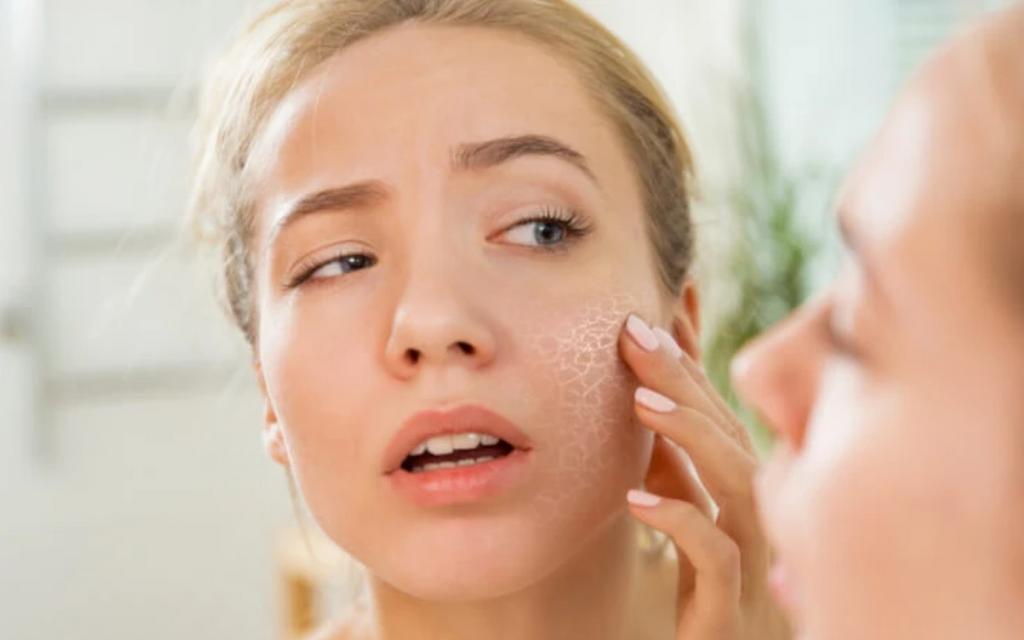
Ceramides in Foods
Ceramides are natural ingredients that are commonly found in plants. This means that you can actually boost your ceramide levels from within by including more healthy fats in your diet. Foods that contain ceramides include sweet potatoes, soy, wheat, corn, brown rice, and spinach. Adding a few of these ingredients to your plate every once in a while will help improve your skin health and boost that barrier!
Rejuvenate Your Skin From Within With Taut
Armed with the right ingredients, you can take control of your skin and get that glow you've been searching for. A topical skincare routine is important to maintain healthy skin function, but the best approach is a holistic one that considers the whole body. Nourishing your skin from the inside out is equally important, giving your body the nutrients it needs to really shine.
If you want to start your journey to better skin health, our Intense Transformation Program can help. A three-week supply of our best-selling Taut Liquid Collagen Drink, this program provides you with a daily supplement that strengthens and heals skin from the inside out. Ceramides are combined with collagen peptides, elastin, and powerful antioxidants in this super-charged formula designed to deliver the very best results for your skin.
Plus, you can save up to 15% off your transformation program when you subscribe to our auto-ship service!
References:
- Skin Hydration - National Library of Medicine
- Safety Assessment of Ceramides - National Library of Medicine
- Moisturizers and Ceramide-containing Moisturizers - National Library of Medicine
- Moisturizer and Lotion for Eczema - National Eczema Association
- Efficacy of a Ceramide-based Cream - National Library of Medicine
- Potential Applications of Phyto-Derived Ceramides

